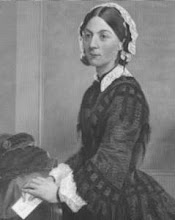
Barnstar (or barn star): a decorative painted object or image, often in the shape of a five-pointed star but occasionally in a circular "wagon wheel" style, used to adorn a barn. Most commonly seen in German-American farming communities. Having no structural purpose, they are mainly used for their general aesthetic appeal and are even considered lucky, akin to a horseshoe mounted over a doorway.
The tradition of the barn star in America can be traced back to the 1700's, and to at least the 1820's in Pennsylvania. Barn stars were most popular after the Civil War. On many older American barns, particularly German farms, one could see a large decoration in the shape of a star mounted on the face of the barn. Sometimes they were just aesthetic, but sometimes they represented the trademark of a specific barn builder. It is our understanding the original star shape was a three-pointed star but has changed throughout the years. Colors had significance with the Amish and Pennsylvania Dutch barn paintings. These folk art designs, many of which were star shaped, were painted directly onto each end of the barn, and date back to the 1850's.
Color significance:
Black- Protection, also used to blend or bind elements together.
Red- Emotions, passion, charisma, lust, and also creativity.
White- Purity, power of the moon, allows energy to flow freely.
Blue- Protection, peace, calmness and spirituality.
Green- Growth, fertility, success in things and ideas that grow.
Yellow- Health in body and mind, love of man and the sun, connection to God.
Brown- Mother earth, also can mean friendship and strength.
Orange- Abundance in career, projects and matters needing an added push.
Violet- Things that are sacred.
A barnstar was viewed as a symbol of good luck to farmers "way back when", as they are still viewed by many people today. The popularity of one or even multiple stars displayed on a garden wall, or side of one's home is a very popular decorative accent.
 all of my Christmas shopping last week, the week before
all of my Christmas shopping last week, the week before


 all of my Christmas shopping last week, the week before
all of my Christmas shopping last week, the week before



 "Youth fades; love droops, the leaves of friendship fall; A mother's secret hope outlives them all." -- Oliver Wendell Holmes (1809-1894)
"Youth fades; love droops, the leaves of friendship fall; A mother's secret hope outlives them all." -- Oliver Wendell Holmes (1809-1894)